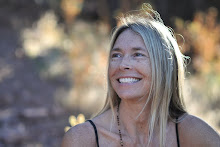I am intrigued by this recurring archetypal theme - think Vasalisa, Cinderella, Harry Potter, Moses - and how it applies to those of us on this journey. How many of us feel like we are orphans or that we do not 'belong' to our birth families? Separated from my father for much of my life and raised by a mother that I didn't feel a kinship towards, I have felt like an orphan, a misfit, for many years and have striven to create my own family - a soul family. (Personally, I always secretly hoped I was the love child of my father and Joni Mitchell, but alas, I don't think that's true...)
Here's an article that summarizes what Joseph Campbell has to say about Moses and the orphan theme: to read more, click HERE.
(it's long but I really thought it was interesting...especially the last sentence!)
"A common theme in hero stories is the idea of a childhood spent in obscurity (“an infant exile and return,” in the words of Campbell). The prince and princess, the hero with miraculous powers, and protagonist of many a story spend their childhood unknown to the outside world, and often unaware of their own heritage.
Moses, of course, is an excellent example of this. In Exodus 2, Moses’ Hebrew mother sends the infant Moses down the river in a basket in order to save his life. Moses is taken from the river by the daughter of the Pharaoh and raised as an Egyptian prince.
Unbeknownst to him and most of the Egyptians, he is the same race as the Egyptian Hebrew slaves. When he finally makes this discovery, he exiles himself into another country to try and live out the life of a shepherd. God calls him back to fulfill his destiny: Lead the people of Israel out of oppression.
Think also of Cinderella. Or Oliver Twist (or just about all the Dickens’ stories, where the protagonist doesn’t discover his parental heritage – and the wealth it brings – until the final chapters).
In our own time, we have Little Orphan Annie and, even more contemporary, The Princess Diaries and Harry Potter which tell the same story. In fact, the idea that we are in the “wrong family” and must have been switched at birth (preferably with a royal family or a family with special powers) is a childhood fantasy shared by most of us.
And so the story of Luke Skywalker strikes a chord with all boys (and girls) who, like Luke, dream of being shown magic powers they didn’t know they had, of traveling the stars, and of having great adventures.
The infant Jesus is in the same predicament in Mt: 2. An angel tells Joseph in a dream that the family must flee to Egypt in order to hide the baby from Herod. Herod is searching for the baby for the same reasons that Darth Vader and the Emperor are interested in the Skywalkers: He is afraid of the baby and its power.
Even when Herod dies, Joseph is afraid to return to Israel. He is again told in a dream to go to the district of Galilee (Mt 2:22). There, like Luke, the holy family leads a quiet life in a small fishing town. Jesus lives in such obscurity there that we do not hear about him again until he is thirty years old.
Again, we have the case of the reluctant hero when Luke (and Moses) first refuses the call of destiny. Campbell writes, “The myths and folk tales of the whole world make clear that the refusal is essentially a refusal to give up what one takes to be one’s own interest.” (self)
We are not given any information about how Jesus responded to his “call” at the age of thirty, but he, too, must have struggled with his vocation. Certainly his life up until them must have been much like Frodo’s and Luke’s: a quiet life spent working and playing among family and friends he had known since childhood. The politics of the bigger cities – Jerusalem, Minas Tirith, the Death Star – are far from these hero’s homes and their minds. Suddenly, they find themselves thrust into vocations that demand that they deal with many more types of people than they are used to, some of whom want to see them dead.
Imagine one day you find yourself drinking wine or beer at a friend’s wedding or birthday, and the next day you find yourself directly responsible not only for the lives of the people you love but for the future of the entire world.
No wonder Jesus went into the desert for forty days before he undertook his mission."
And we are all on our 40 day journey - before we take on our personal mission - whatever that may be, if anything... Tomorrow, I am going to continue talking about this concept of the death of self (slaying of the ego) and our responsibility for the people we love and for the future of the entire world! Stay tuned :) xoxo

2 comments:
wow, i found that fascinating and very relevant to my my experience, for sure. i have always felt like the odd duck in my family and like i am not "of" them and certainly not "from" where they reside. huh. never made the link to that archetype before. very thought provoking and shifts that feeling from one of being lost to a sort of freedom of opportunity and possibility!
I am so happy that you found this relevant! Yea! And, as somebody who also feels like the odd one in the family, you are not alone :) So glad to hear about your re-frame - opportunity and possibility...awesome!
Post a Comment